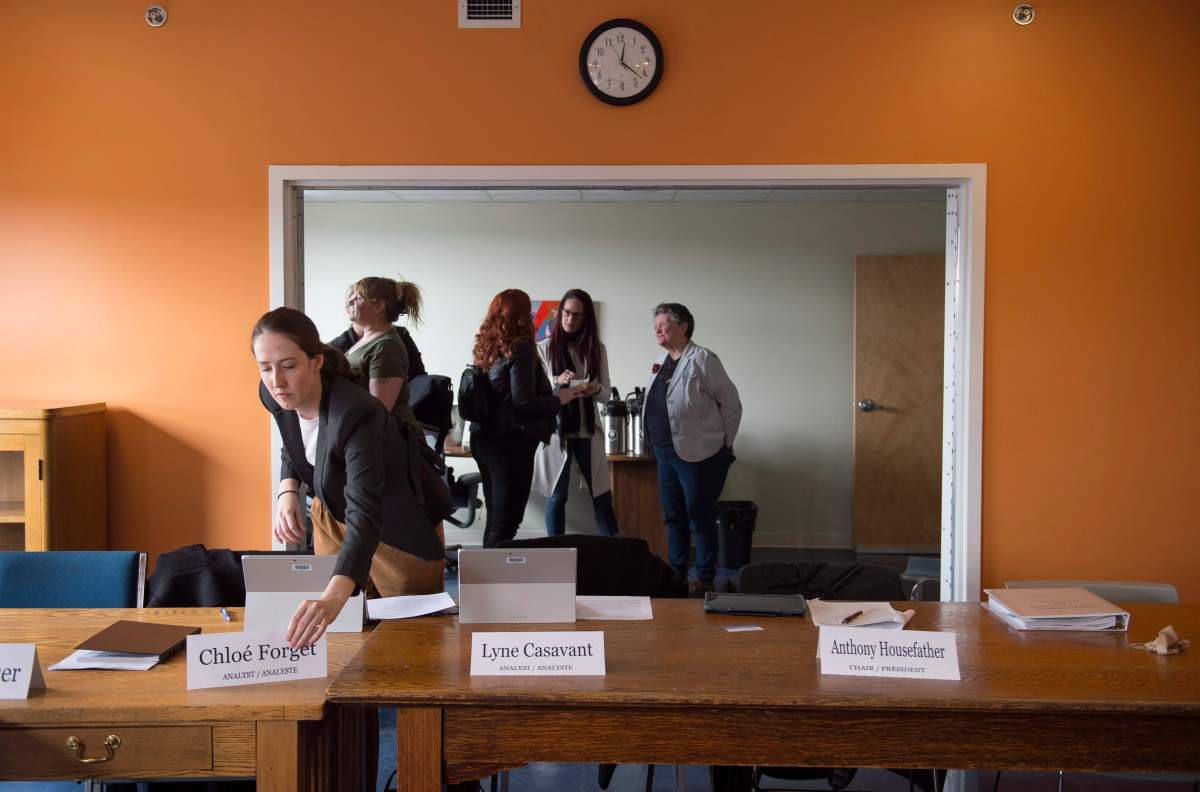She was a strong, well-spoken young woman who came from a loving home in western Nova Scotia.

But it wasn’t until Maddison Fraser had moved to Alberta in her late teens that her mother learned she had been lured there to work in the sex trade.
Jennifer Holleman of Yarmouth, N.S., told her agonizing story Monday to a federal committee that has just started travelling the country to learn what to do about combating human trafficking, which some are calling a growing form of modern slavery.
READ MORE: Federal committee in Halifax to kick off cross-country hearings examining human trafficking
“She thought she was in a relationship for all the right reasons, but it turned out to be all of the wrong reasons,” she said after making a presentation to the House of Commons standing committee on justice and human rights.
“It baffles me that this actually happened to her. There wasn’t a lot of warning signs until I started to dig … I just never would have thought that this would happen to her.”
At one point, Holleman pulled two photos from her purse, one showing her daughter, then a healthy blonde-haired girl with a perfect, telegenic smile.
The other photo shows the same girl, but she is barely recognizable. Her face is bloated. Her short hair is ragged. And both of her eyes are blackened and almost swollen shut.
“They set her hair on fire,” she said, referring to the pimps who abused her.
“They burned her with cigarettes and lighters. They beat her beyond recognition, and they all sexually assaulted her.”
Fraser cut off communication with her mother after her double-life was revealed.
Holleman went to police, but they said there wasn’t much they could do.

Get daily National news
“When you feel that your hands are tied and you can’t protect your children, it’s the most horrifying feeling in the whole world,” she said.
On July 8, 2015, her daughter – then 21 – was killed in a car crash in Edmonton. The man behind the wheel was believed to be a john.
Just over a year later, Holleman started speaking out about what happened, revealing that she had found a voice recording on her daughter’s phone that offered evidence about the brutal beating she had endured – and who did it.
“I lost her, but I just can’t put my arms up and say, oh well. People need to be made aware of this,” she said, her strong voice cracking ever so slightly.
“Today, when I told her story, I saw members of Parliament with tears in their eyes. It really hit home with them. That’s all I wanted to do. I wanted to make them feel what I feel … and know that it’s painful, and it’s hurting.”
READ MORE: Police brief Halifax officials on human trafficking trends in Nova Scotia
Holleman said the RCMP have reopened their investigation of her daughter’s case, but details remain sketchy.
The 12-member all-party committee heard from other parents and survivors of the sex trade Monday, but the hearings were held behind closed doors.
More hearings are scheduled for later this week in Montreal, Toronto, Edmonton and Vancouver.
The fact-finding sessions are aimed at learning more about human trafficking, which involves recruiting, transporting and detaining people for so-called forced services. That includes domestic slavery and forced labour in some industries, but the most common form in Canada is sexual exploitation.
WATCH: What is human trafficking?

Most of the victims are women and children, controlled by violence or threats of violence, with Indigenous women and girls making up a large proportion of victims. Those also at high risk include migrant workers, new immigrants and members of the LGBTQ community.
The committee plans to draft a national plan to combat human trafficking and improve services and protection for victims. The committee’s report will also look into the prosecution of traffickers and the challenges facing community organizations that assist victims.








Comments
Want to discuss? Please read our Commenting Policy first.